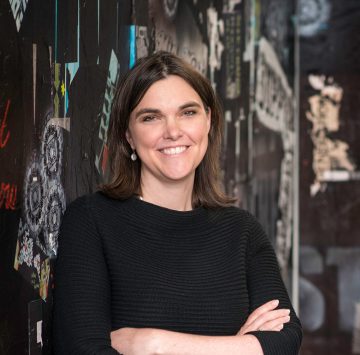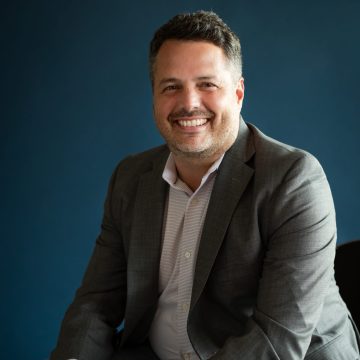Note from Jen
Note from Jen: Investing in community problem-solving
The Community Innovation grant program evolved from one of our three “Goals for a Decade,” announced back in 2008. Now the decade has passed. We now are considering the continued evolution of our organizational strategy. For Community Innovation grants, one thing we are thinking about is whether we can make the program both higher impact and easier to understand if we focus less on the particulars of the problem solving process and more on the potential of the idea being developed and tested. Published 2020
DATE
March 3, 2020

Our Community Innovation grant program is the Bush Foundation’s largest and most flexible grant program. Since the program was created in 2013, we’ve given out 202 grants totaling more than $32 million to organizations working on a wide range of issues in communities all around the region. (Plus, our state-level intermediary partners have made an additional 641 grants totaling over $6.2 million.)
The Community Innovation grant program evolved from one of our three “Goals for a Decade,” announced back in 2008. (Read more about the Goals for a Decade.) One of the goals was to support communities to get better at solving problems. A few years into working on this goal, we were hearing strongly from communities that they wanted grant funding to support them in doing the work of community problem solving. That’s why we created Community Innovation grants.
Now the decade has passed. Within the Bush Foundation, we are considering the continued evolution of our organizational strategy. For Community Innovation grants, one thing we are thinking about is whether we can make the program both higher impact and easier to understand if we focus less on the particulars of the problem solving process and more on the potential of the idea being developed and tested. It’s a subtle shift, but one that we think could be meaningful for the overall impact of the program on the region.
As we were beginning to consider this idea, we talked to people from 27 organizations to get their input — some past grantees, some current grantees and some who have not received funding from us. We continuously survey applicants and grantees to improve our programs, but these conversations gave us a chance to go deeper on some specific questions related to potential changes. Here’s what we heard:
We heard a lot of things that people like about Community Innovation grants and wouldn’t want to change, for example: Access to Bush Foundation staff and the quality of those relationships; the easy application process and rolling review process; the flexibility of funding use and the funding level.
When we asked about the idea of shifting our focus more strongly to the potential impact of the ideas being developed and tested, the main concerns we heard were: Whether it might become more competitive in ways that disadvantage smaller, grassroots organizations and whether we would lose the focus on community and community ownership.
When we asked for suggestions of how we could better support organizations to solve problems, we heard: People and organizations need support to build their problem-solving capacity, and more non-financial support would be helpful; the duration of Bush’s commitment is more important than the grant amount, but larger problem solving grants would be nice; and that it’s important to assess whether an applicant organization really has the capacity to test new ideas.
This feedback is influencing our efforts within the Bush Foundation to push ourselves to be more simple, more cohesive, and more open and responsive to the communities we serve. As we develop our thinking, we’ll be doing more community testing along the way.
In this and all the strategy work we are doing this year, we want to do more of the things we hear people value the most, both in what we do and how we do it.
–Jen
Continue reading
-

News
Opportunity to work with us
As part of our office move later this year, we are exploring possibilities for the build out of the ground floor of the building. We are in the early stages of this and considering different types of operating models and potential partnerships.
-

Staff note
Coordinating the work of our contact hub
We aim to be radically open in all that we do, and that includes being more accessible to more people and sharing what we learn along the way.
-

Staff note
Making every dollar work through impact investing
We have benefitted from the experience of other funders as we developed our impact investing approach. Now we are paying it forward and sharing what we have done and what we have learned.